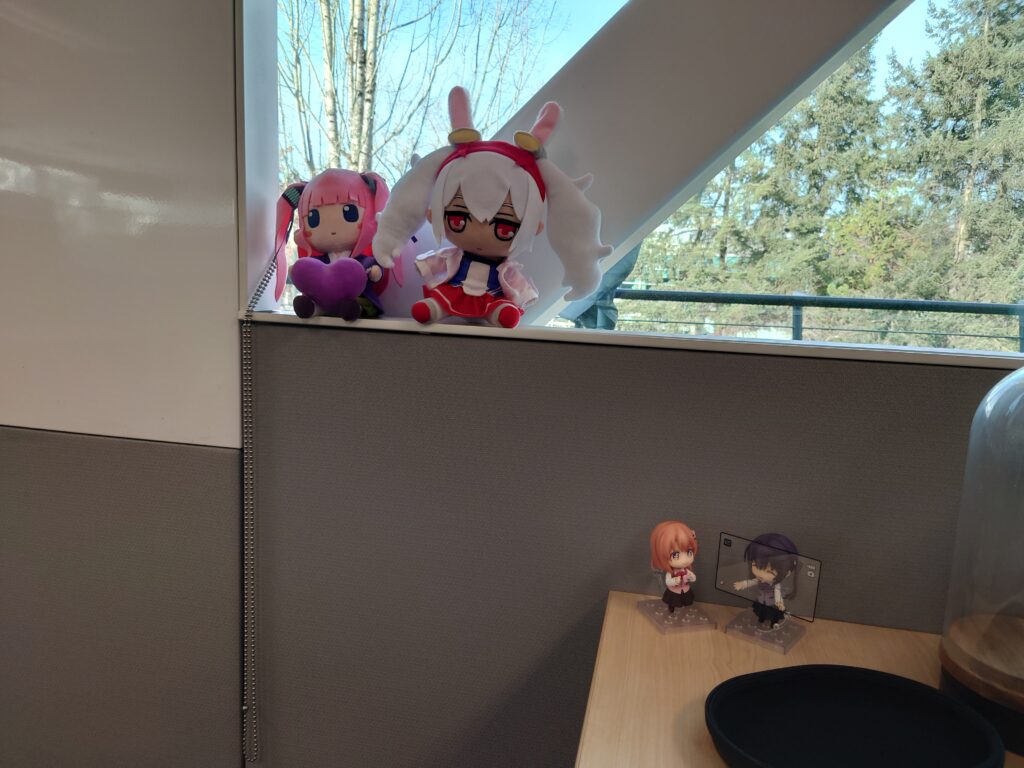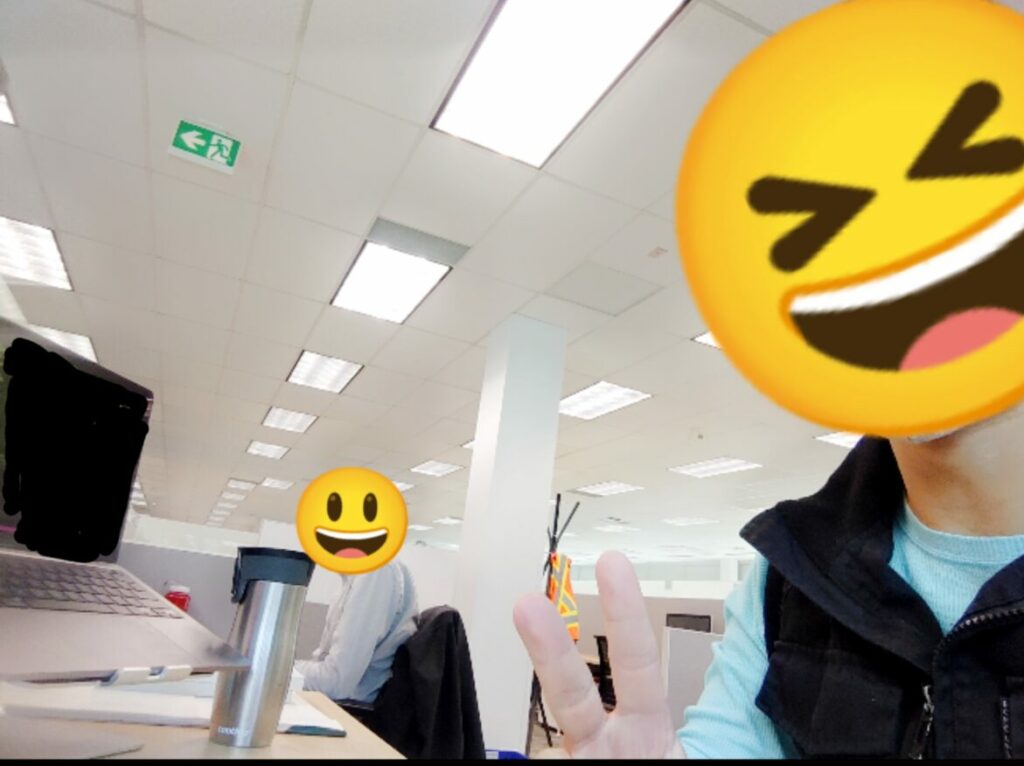When you start a new job, one of the first things that happens is that you’re paired with someone else that can guide you or “teach you the ropes”: otherwise known as a mentor. When I first started at my current job, I didn’t get a mentor since I was mentored when I did an internship at said company, but when I did have an mentor, I was able to ask them questions about where things were in the codebase, how to accomplish a certain task, and more.
This past semester, I was given the opportunity to be on the other end and “tag team” with a co-worker to mentor an intern. There was a lot that I learned throughout this process, so I thought it would be worthwhile to dump my thoughts in this post.
The concept of mentoring isn’t new to me: I’ve been helping a few people out on a consistent basis for the SFU Anime Club Discord bot throughout the last 3 years. I expect mentoring someone that has less experience than you is much different than mentoring someone coming from another job. That being said, as usual, please do take this perspective with a grain of salt.
Mentoring requires organization
While in a mentor role, one of the things we have to do is prepare material for our mentee to succeed. My “mentor-partner-in-crime” and I decided to go about this in a few ways.
The first thing we did was create a presentation for our mentee, which we presented on their first day. For me, I felt that it was a standard thing to do. We often get that “spiel” at the beginning of the school semester, outlining the learning outcomes of the class, setting the expectations and the deliverables over the course of the term, and how they are evaluated. We decided to do the same in the context of our mentee’s internship. We gave them a rundown of who we are, the team they’re joining, what we expect from them as a mentee, and what they should expect from us as mentors. I think that it helps put everyone on the same page, and leaves our mentee in a “less confused” state.
The second thing we decided to do was give weekly goals to aim for. I got this suggestion from my senior co-worker in the second or third week into our mentorship, and he mentioned that it can give some purpose for the work week. I will admit that we didn’t follow through with this all the way as I would have liked. That being said, from the feedback we got from our intern, he seemed to like this approach, so that is something we will be definitely continuing with going forward.
Lastly, we decided to do daily sync-up meetings. We did this for a few reasons. The first was to provide our mentee the opportunity to ask questions about the things they’re working on. More often than not for me at least, I hesitate to ask questions; however, when someone proactively asks me about something, I tend to answer or ask for more guidance. This is the kind of environment we wanted to provide to our mentee. The other reason was to provide a platform to talk about our personal anecdotes. As I might have alluded to in previous posts, I had this huge issue of “imposter syndrome” when I started. When surrounded by other individuals that are delivering on their tasks and you see that you’re maybe not going as fast or not doing enough, I found myself quickly casting doubt on myself, and often kept this bottled up inside (which is not healthy, by the way). By giving us this extra time to talk about these things, my tag team partner and I hoped to encourage our mentee to be curious and not be discouraged by roadblocks: they are part of the learning experience of both a student and a full time employee.
Mentoring can be time consuming
This kind of goes hand in hand with the previous section. When you’re a mentor, one of your daily tasks is to ensure that your mentee isn’t stuck on something for too long. Your mentee may ask you for help at any time, which means you have to context switch within a reasonable amount of time. As someone that likes answering questions in detail, coming up with an answer (there may be multiple answers), along with other resources to aid them in the future, takes a lot more time than you would normally expect.
That said, I believe that taking the time to help someone who is just starting out is not only the right thing to do, but also builds a better working relationship. At the end of the day, you want new people to feel included and able to contribute to the team, and the only way to do that at the beginning is to “show them the ropes” on how things are done. People are then more comfortable asking for help and more willing to engage with other fellow co-workers, which I believe can help foster a good work environment.
Mentoring exposes knowledge gaps
When I look back at myself being in the intern/mentee position over 3 years ago, there were many things that I didn’t know. When I asked my mentor at the time about those things, I updated the documentation so that someone else wouldn’t stumble on the same things and have to ask the same questions.
Now that someone else is in that same spot I was in 3 years ago, they come to me with questions. Some of them I’ve stumbled upon before: I direct them to the appropriate documentation. There are also some questions that are new to me, for which I offer a (hopefully) satisfactory answer after doing some digging. I also encourage my mentee to do the same as I did: if they find knowledge gaps in the documentation, then they should also update the documentation to reflect the correct information. It is the right thing to do, and can help save someone else’s time should they stumble upon the same problem.
Mentoring is a fulfilling role
One of the things I love about my job is problem solving. When you find something wrong, you want to get to the bottom of it (AKA root cause), and fix it! When someone comes to you with a problem because they think you’re the area expert, being able to help unblock them is a huge morale booster. Mentoring is no different: you’re giving your mentee some guidance in order to help them succeed, and when they win, you win! I don’t think there is a reasonable person out there that wants to give bad advice or guidance to someone.
In addition, I enjoyed presenting anecdotes from my experiences. Coming from the same school as my mentee, I tried to give comparisons between some of the classes that he’s taken with how things apply at the company. For example, my mentee asked me about the school to work transition, and I talked about the difficulties I had with work/life balance, as I used to study my butt off in school, and then that sort of backfired when I tried to do the same with work: I hit the burnout stage much quicker than I thought. Giving your mentee some different perspectives and helping them out is the right thing to do. At the end of the day, I want to equip someone with the right tools and mindset to approach a problem, and to also present the human aspect of work that is interacting with your coworkers. With that said, I also got to observe the kinds of things my mentee does, and learn from them as well. For example, seeing my mentee “switch off” for the day by disconnecting at ~17:00 daily is commendable for work/life balance. It’s something I’m still actively working towards!
Back to the human aspect, that part is something that, in my humble opinion, can make or break a good workplace. I might have touched upon it before, but my company has a set of cultural values that we follow. One value I alluded to earlier was “doing the right thing”. My approach to everything human is to try and put myself in that position to see how I would like to proceed: “what should I know in order to make myself less confused?” Obviously, there is an expectation of some baseline understanding, but aside from that, helping your mentee (or anyone else, for our intents and purposes) out and seeing them progress is something super fulfilling in my eyes.
Conclusion
All in all, although mentoring someone takes time, the end result is one that is satisfying. I hope my mentee learned something new, had a great experience in the process and will spread his experience with others back at school. I learned quite a bit myself, such as staying on top of things and being organized.
Anyways, that’s all I have for now. I do have a few other posts in flight, so hopefully will be posting those soon.
Until next time!
~Lui



[…] last year, setting more realistic goals has helped keep my stress levels in check a bit. I also got the opportunity to mentor someone in the latter half of the year, which was a nice change of […]